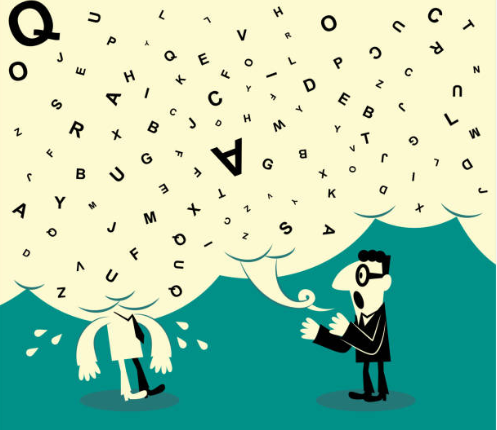There are so many stories about language barriers when traveling. I remember when I was learning English in school, we only knew English as English. It wasn’t until I started exploring the world that I realized not every white person speaks English, and that English varies from country to country, both in accent and word usage. Just by hearing someone speak English, I can often tell where they’re from. Misunderstandings due to language are common. For example, when I ordered a drink in a bar in Germany and said, “I’d like to have a Dry Martini,” I ended up with three glasses of Martini! Oh no! And when traveling to a country where English isn’t the primary language, that’s when my “Tarzan language” skills come into play. Like the time I asked for chili sauce at a restaurant in Cambodia by miming chopping chilies, pretending to eat them, and acting out the spiciness. Only then did they understand.

When traveling by train in Europe, the announcement of the next city is made over the loudspeakers in the local language, switching to a different language when crossing into another country. At the airport, the announcement boards are also in the local language. This is where I often play the guessing game to figure out the names of cities. For example, Geneva in Switzerland is called Geneva in English, Genf in German, and Ginebra in Spanish. But for me, at the very least, I have to memorize the local word for “exit” and know exactly where it is, whether I’m in a restaurant, nightclub, train station, airport, and so on. It feels like I need to be able to quickly escape to save myself in case anything happens. If a country has its own alphabet, I even write down the word for “exit” on a special piece of paper. I also make sure to note the address of my accommodation so it’s easy to show to locals if I get lost.

In 1995, my friend had his wallet stolen in Prague, Czech Republic. We immediately searched for the police to report the loss because his ID, driver’s license, and credit card were in there. Unfortunately, no one in that country spoke English, and their second language was German. So, using our Tarzan language, we were “passed around” from one officer to another until we reached a large police station in a multi-story building. In one room, we were asked to explain what happened, but no one understood English. We ended up performing a bit of a drama, almost like a pantomime: we mimed walking around, me taking his wallet, chasing each other, and so on. The police in the room burst out laughing. Just our luck. We were told to wait for an hour, and then we were given a piece of paper—a report in Czech! Hehe, how foolish we were to go through all that trouble just to get a certificate that was useless back in Indonesia.

Another funny story happened in Manila, Philippines. One morning, I took a taxi to the Centennial Airport, and suddenly I smelled a strong odor, like someone had farted. I immediately got angry with the taxi driver because I was sure he was the one who let out the unpleasant gas, as the air-conditioned taxi had closed windows, and it was unlikely that the smell came from outside since we were driving on a main road far from any sewers or garbage heaps. I scolded him in Indonesian—probably because the driver looked like a real Indonesian, “Damn! Did you fart? It smells like fart, you know! Ugh, how dare you fart!” Instead of feeling guilty, the driver just smiled sheepishly, his face turning red like a boiled crab, and he became very nervous. Fortunately, we arrived at the airport shortly after, so I quickly got out without prolonging the issue, even though I was annoyed. That evening, I was chatting with some local Filipino guys on the beach in Sabang, and our conversation turned to the topic of dirty words in each country’s language. To my horror, I found out that the word ‘kentut’ in their language means ‘f*ck’! No wonder the taxi driver turned red, he probably thought I was asking him to sleep with me.
Once, I was fortunate to stay in a hostel in Athens, where a room meant for four people was just me and a very handsome young Japanese guy. We spent two days together, even though his English was terrible. He carried an electronic dictionary everywhere so he could communicate with me, and he even sounded like a robot because he followed the voice in that gadget. His response to complex questions was always “I don’t know”—which either meant he didn’t know the answer or he didn’t know how to answer in English. Since he was handsome and I was traveling alone, I didn’t mind; it was amusing. On the last night, as we lay in our respective beds, he suddenly asked, “Who are you thinking about now?” Aha, I thought there might be something there.
I teasingly replied, “You.”
Pause. One minute. I saw him typing something into his electronic dictionary.
“What about you? Who are you thinking about now?” I asked, curious but pretending not to care.
“I don’t know,” he replied flatly.
I pulled up my blanket and went to sleep. Annoyed.
